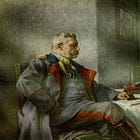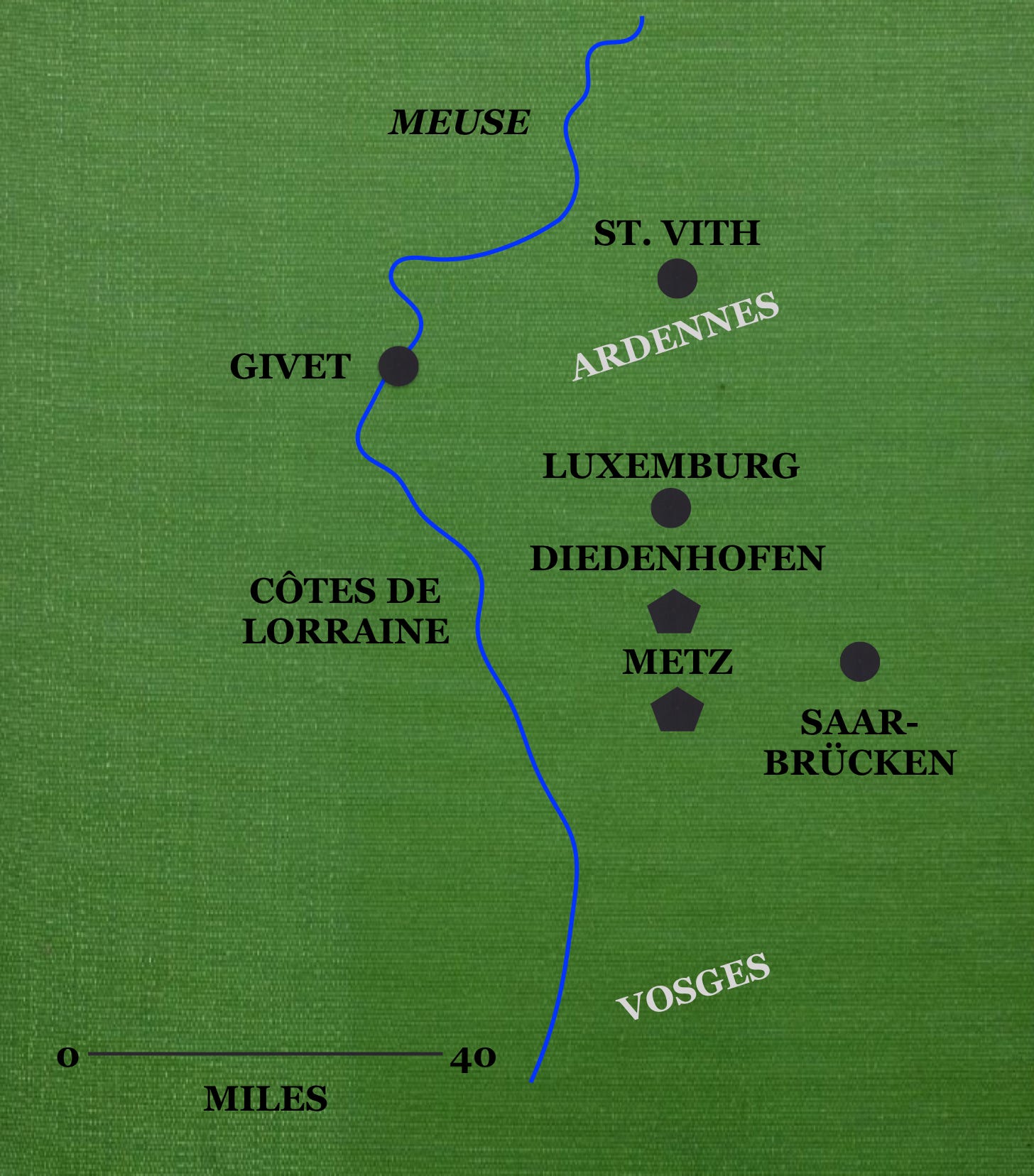This post belongs to a long series. To read the parts that precede it, and those that follow, please use the following display link.
Georg Wetzell
Field Marshal Count Moltke, Count Schlieffen, and the World War
(Conclusion)
It has been repeatedly stated, Joffre himself made the remark, that the French armies would probably have decided to halt their advances into Alsace-Lorraine and Belgium. This is clearly refuted, however, by Joffre’s attack orders to the French First and Second Armies: 'Direction Saarbrücken', as well as by the definitely established fact that the French for years had planned to launch a general offensive on the front between the Vosges Mountains and the Meuse.
Post-war attempts to conceal this fact are of no avail. Large armies in war (one-half each of the French Army) are not in the habit of conducting practice marches across the German or Belgian frontier.
Like the actual operation of 1914, the two main battles of this proposed operation (in Lorraine and the Ardennes) probably would have taken place within a few days of each other. It was August 18 before the French Third, Fourth and Fifth Armies proceeded across the Belgian border from their concentration zone which extended from the Côtes de Lorraine to Givet, astride the Meuse. Under these conditions, certain elements possibly could have been withdrawn from the fortified zone of Diedenhofen-Metz and employed against the eastern flank and rear of the French armies that had invaded Belgium.
The entire operation, as described here, conforms to the principles of the war games conducted by Count Schlieffen on his staff rides of 1904 and 1905, exercises which he regarded as most valuable studies for the preparation of war. Considering my proposed execution of the operation as a whole, I would recommend that General von Moltke follow in the footsteps of his great uncle and personally assume the command of the main forces in the center during the crisis. From August 20 on, he, accompanied by the Emperor and a small operations staff, should therefore have established himself near the Fourth Army, for instance at St. Vith.
In the event of an early French attack in the direction of Luxemburg, which was possible, the Fifth Army should have retired to the north and east, until the turning movement of the Third and Fourth Armies had carried their lines far enough ahead.
This series will continue with War and the Military Commander of the Future. Once an element of that article has been posted, you will be able to find links to it on the following guide.







